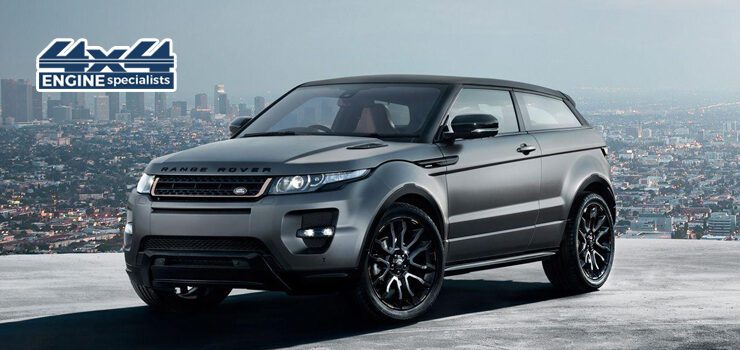The Range Rover Evoque is one of the most popular and stylish SUVs in the market, combining luxury, performance and sustainability. But what makes the Evoque stand out from the crowd is its innovative 2.0-litre engine, which offers a range of benefits for drivers and the environment. In this blog post, we will explore the future and innovation of the Evoque 2.0 engines, and how they can enhance your driving experience.
What are the Range Rover Evoque 2.0 engines?
The Evoque 2.0 engines are part of the Ingenium family, which is a series of advanced, efficient and modular engines developed by Jaguar Land Rover. The Ingenium engines are designed to deliver optimal performance, refinement and fuel economy, while reducing emissions and noise.
The Evoque 2.0 engines are available in both petrol and diesel variants, with different power outputs and features. The petrol engines range from 200 PS to 300 PS, while the diesel engines range from 150 PS to 240 PS. All the engines are equipped with a 9-speed automatic transmission, which provides smooth and responsive shifting.
The Evoque 2.0 engines also feature a mild hybrid system, which uses a belt-integrated starter generator (BISG) to harvest energy during deceleration and store it in a battery under the floor. The stored energy can then be used to assist the engine during acceleration, or to power the electrical systems when the engine is off. This reduces fuel consumption and emissions, as well as improving the start-stop function.
What are the benefits of the Range Rover Evoque 2.0 engines?
The Range Rover Evoque 2.0 engines offer a number of benefits for drivers and the environment, such as:
Performance: The Evoque 2.0 engines deliver impressive performance, with strong acceleration, smooth handling and agile response. The petrol engines can reach 0-60 mph in as little as 6.4 seconds, while the diesel engines can achieve up to 50.4 mpg on the combined cycle.
Refinement: The Range Rover Evoque 2.0 engines are designed to reduce noise and vibration, ensuring a quiet and comfortable ride. The engines also feature active vanes, which adjust the airflow to the turbocharger depending on the engine speed and load, enhancing efficiency and responsiveness.
Sustainability: The Evoque 2.0 engines are engineered to minimise their environmental impact, by reducing CO2 emissions and improving fuel economy. The mild hybrid system also helps to lower emissions by up to 8%, while the intelligent stop-start function can save up to 3% of fuel.
Versatility: The Range Rover Evoque 2.0 engines are compatible with a range of driving modes, such as Comfort, Eco, Dynamic and Off-Road, which adapt the engine settings to suit different terrains and conditions. The engines also support the Terrain Response 2 system, which automatically selects the best driving mode for the surface you are driving on.
What is the future of the Range Rover Evoque 2.0 engines?
The Evoque 2.0 engines are constantly evolving to meet the changing needs and expectations of drivers and the environment. Some of the future developments that are planned or in progress include:
Plug-in hybrid: The Evoque will soon offer a plug-in hybrid option, which will combine a 1.5-litre three-cylinder petrol engine with an electric motor and a battery pack. The plug-in hybrid will offer an electric-only range of up to 41 miles, as well as lower emissions and fuel consumption than the conventional engines.
Electric: The Range Rover Evoque will also introduce an all-electric version in the near future, which will offer zero-emission driving and enhanced performance. The electric version will feature a high-capacity battery pack and an advanced electric motor, as well as a range of smart technologies to optimise efficiency and convenience.
Hydrogen: The Range Rover Evoque is also exploring the potential of hydrogen fuel cell technology, which could offer a clean and sustainable alternative to fossil fuels. Hydrogen fuel cells produce electricity from hydrogen and oxygen, emitting only water vapour as a by-product. The hydrogen version of the Evoque would have a similar range and performance as the petrol or diesel versions, but with zero emissions.
What role does technology play in the future of Evoque 2.0 engines?
Technology is at the core of Evoque’s future. The integration of sensors, AI, and connectivity allows for a more personalized and adaptive driving experience. From learning your driving habits to providing real-time updates, technology enhances every aspect of the Evoque driving experience.
The Aesthetics of Power
It’s not just about what’s under the hood; it’s also about the aesthetics that reflect the power within. Future Evoque models boast a design that not only enhances aerodynamics but also exudes a visual appeal that captures attention on the road. The marriage of form and function is perfected in the Evoque of tomorrow.
Closing the Distance
The future and innovation of Range Rover Evoque 2.0 engines promise an exciting journey. From turbocharged brilliance to sustainable performance, intelligent power management, and tech-infused precision, the Evoque is set to redefine the driving experience. As we eagerly anticipate the next evolution, one thing is certain – the Range Rover Evoque is not just a car; it’s a statement of power, luxury, and a commitment to a greener future.
FAQs
How much does the Range Rover Evoque cost?
The Range Rover Evoque starts from £32,100 for the base model with a petrol engine, and goes up to £50,440 for the top-of-the-range model with a diesel engine.
How many seats does the Range Rover Evoque have?
The Evoque has five seats, with ample space for passengers and luggage.
How safe is the Range Rover Evoque?
The Evoque has a five-star rating from Euro NCAP, and features a range of advanced safety and driver assistance systems, such as adaptive cruise control, lane keep assist, blind spot assist, emergency braking and park assist.
How reliable is the Range Rover Evoque?
The Evoque has a high level of reliability, and comes with a three-year or 60,000-mile warranty, as well as a six-year anti-corrosion warranty and a three-year paint warranty.


